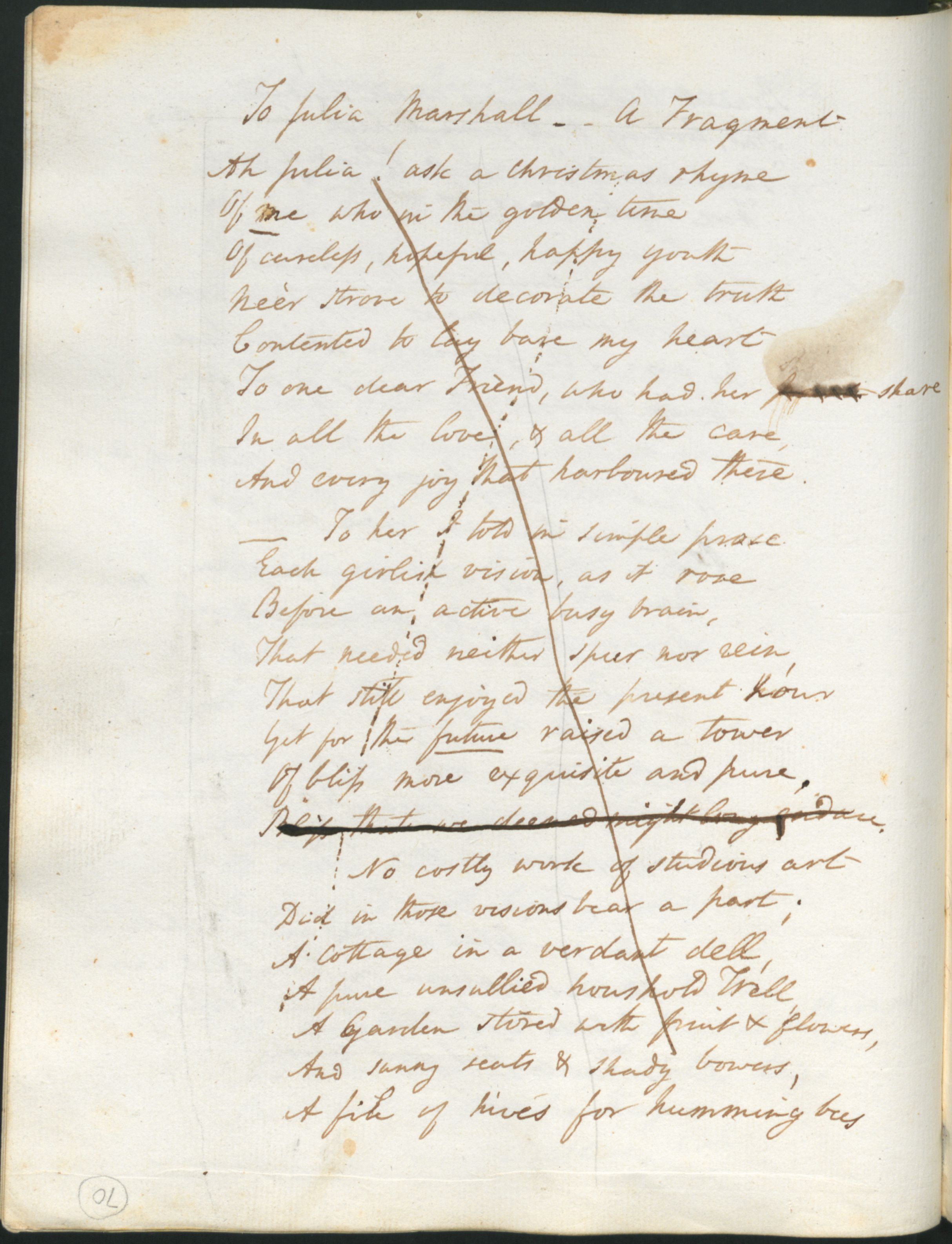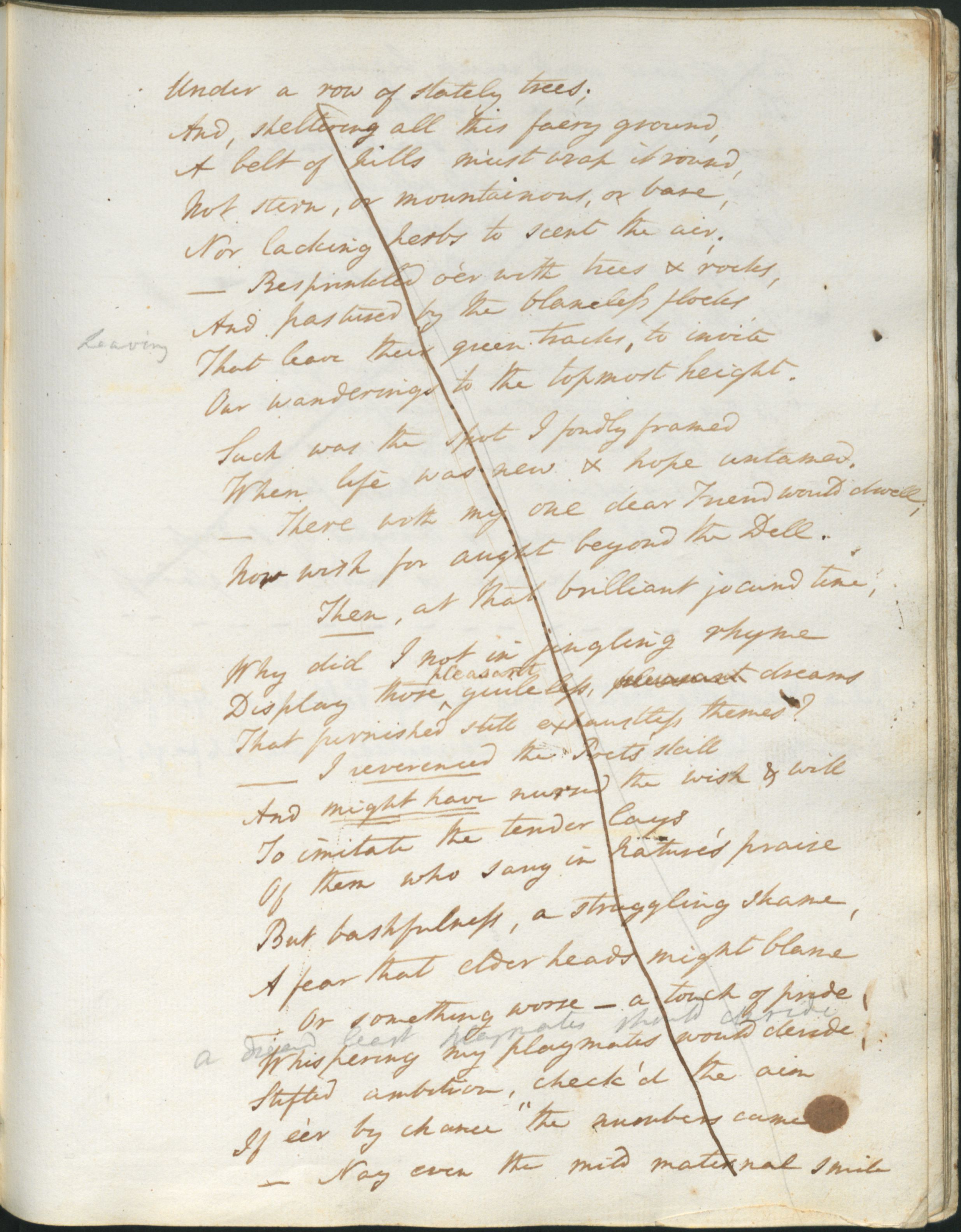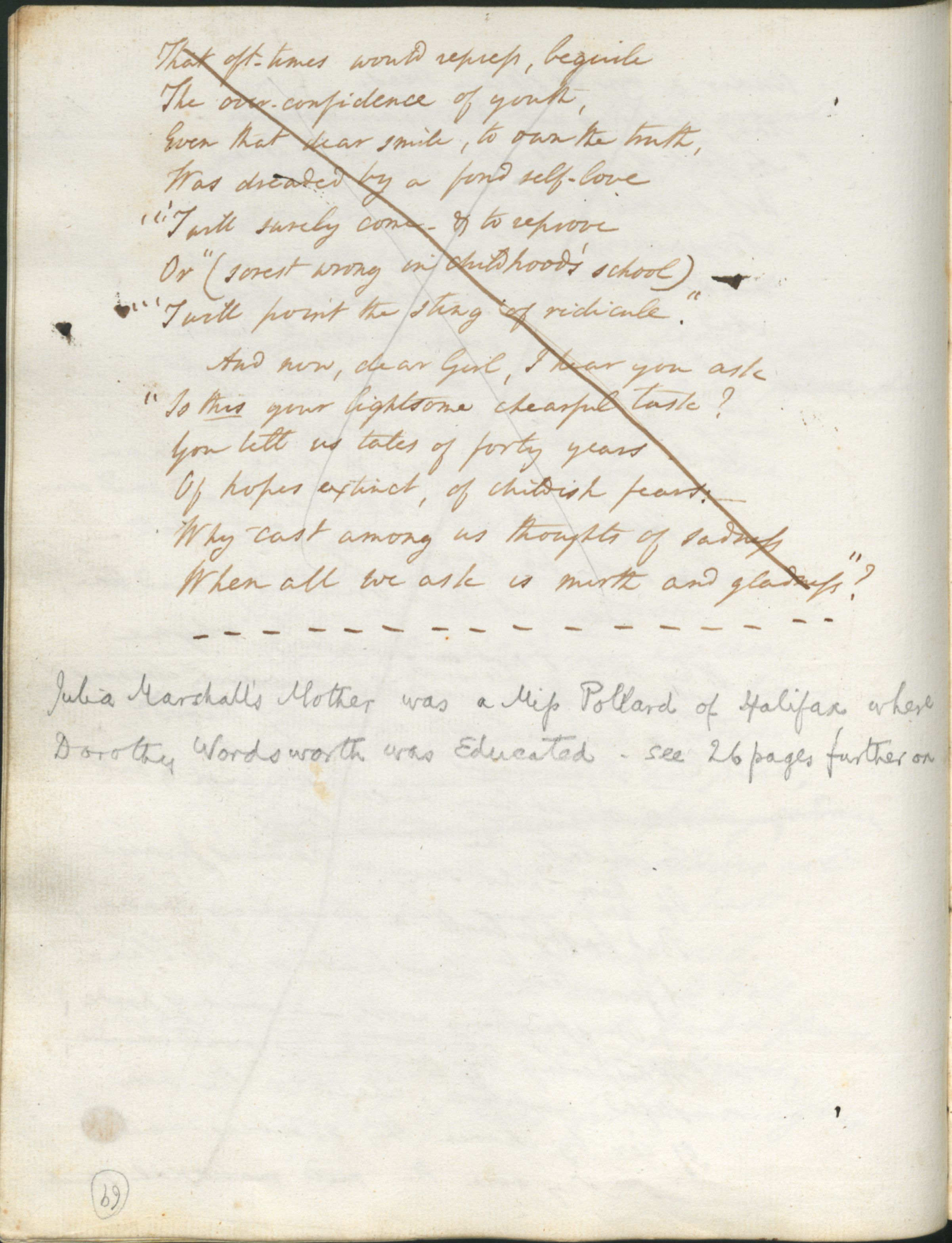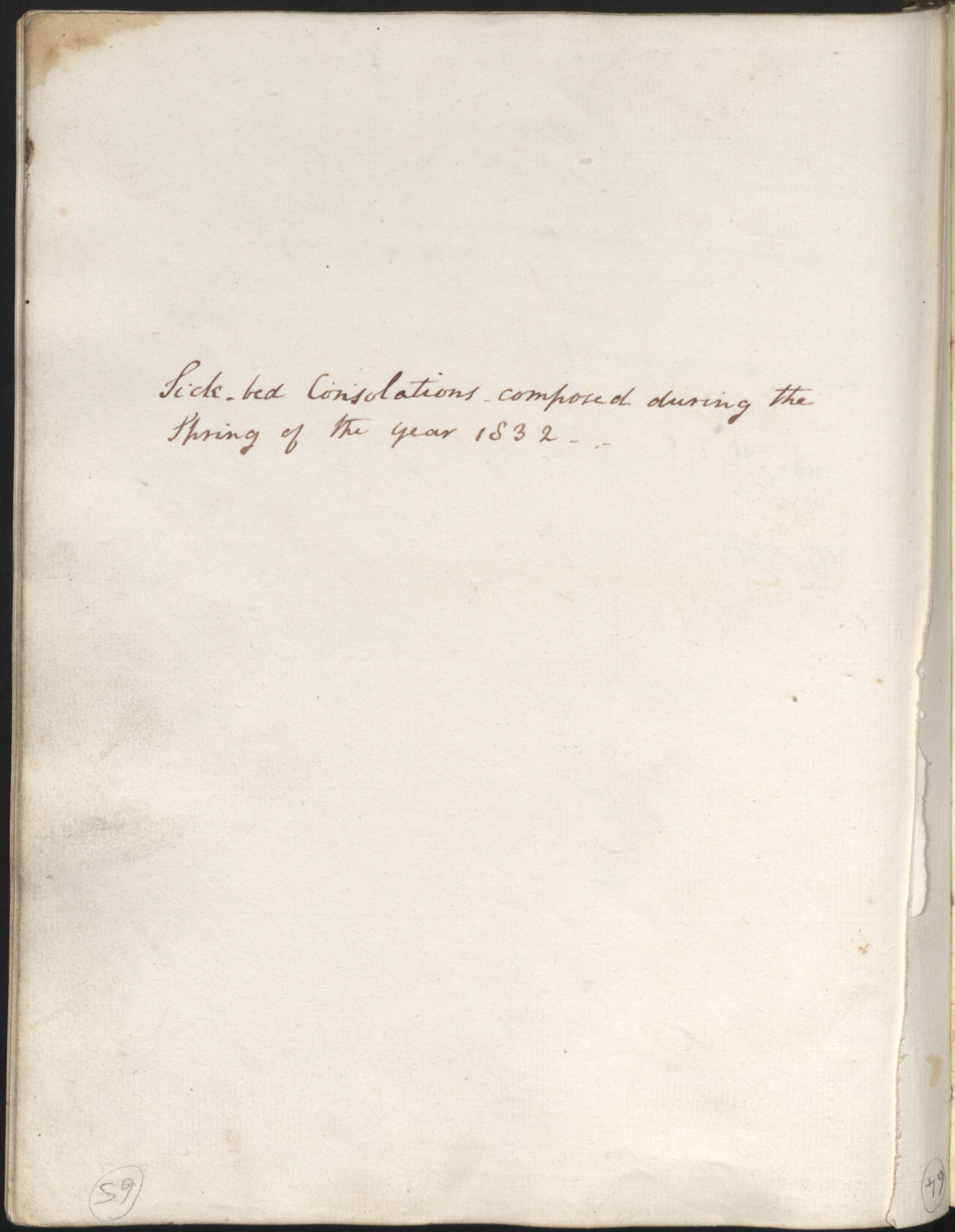[Page f.21v]
The entire poem has been canceled with a diagonal strikethrough on each page.

To Julia Marshall - A Fragment
Ah Julia! ask a Christmas rhyme
Of me who in the golden time
Of careless, hopeful, happy youth
Ne’er strove to decorate the truth
Contented to lay bare my heart
To one dear Friend, who had her part share
In all the love, & all the care,
And every joy that harboured there.
— To her I told in simple prose
Each girlish vision, as it rose
Before an active busy brain,
That needed neither spur nor rein,
That still enjoyed the present hour
Yet for the future raised a tower
Of bliss more exquisite and pure,
Bliss that we deemed might long endure
No costly work of studious art
Did in those visions bear a part;
A Cottage in a verdant dell,
A pure unsullied houshold Well
A Garden stored with fruit & flowers,
And sunny seats & shady bowers,
A file of hives for humming bees
[Page f.22r]

Under a row of stately trees;
And, sheltering all this faery ground,
A belt of hills must wrap it round,
Not stern, or mountainous, or bare,
Nor lacking herbs to scent the air;
— Besprinkled o’er with trees & rocks,
⟨Leaving⟩ And pastured by the blameless flocks
That leave their green tracks, to invite
Our wanderings to the topmost height.
Such was the spot I fondly framed
When life was new & hope untamed.
— There with my one dear Friend would dwell;
Nor wish for aught beyond the Dell.
Then, at that brilliant jocund time,
Why did I not in jingling rhyme
Display those ^ pleasant guileless pleasant dreams
That furnished still exhaustless themes’?
— I reverenced the Poets’ skill
And might have nursed the wish & will
To imitate the tender lays
Of them who sang in Nature’s praise
But bashfulness, a struggling shame,
A fear that elder heads might blame
— Or something worse — a touch of pride,
a dream least playmates should deride
Whispering my playmates would deride,
Stifled ambition, check’d the aim
If e’er by chance “the numbers came”
— Nay even the mild maternal smile
[Page f.22v]

That off-times would repress, beguile
The over-confidence of youth,
Even that dear smile, to own the truth,
Was dreaded by a fond self-love
“‘Twill surely come — & to reprove
Or “(sorest wrong in childhood’s school)
“‘Twill permit the sting of ridicule.”
And now, dear Girl, I hear you ask
“Is this your lightsome chearful task?
You left us tales of forty years
Of hopes extinct, of childish fears: —
Why cast among us thoughts of sadness
When all we ask is mirth and gladness”?
⟨Julia Marshall’s Mother was Miss Pollard of Halifax where
Dorothy Wordsworth was educated — see 26 pages further on⟩
This note has been added in pencil by G. G. Wordsworth.
[Page f.23r "Blank"]
Folio 23, f.25v–26r are blank; on f.24r–24v, Dorothy has copied “Memorandum of an adventure in Dr. Andrew Bell’ early life taken from the mouth of his sister at Cheltenham May 30th 1831” ; and “Blair’s Grave” is copied on f.25r.
[Page f.23v "Blank"]
[Page f.24r "Memorandum of an adventure in Dr. Andrew Bell’s early life taken from the mouth of his sister at Cheltenham May 30th 1831."]
[Page f.24v "Cont’d."]
[Page f.25r "Blair’s Grave."]
[Page f.25v "Blank."]
[Page f.26r "Blank."]
[Page f.26v]

Sick-bed Consolations composed during the Spring of the Year 1832.
This heading is composed on f.26v and is followed by a stub (f.27). Rachel Feder argues in “The Experimental Dorothy Wordsworth” that Dorothy made an attempt to impose some coherence on the DCMS 120 notebook by creating within it a “collection of poetic ‘consolations’” (542). Referring to Dorothy’s inscription on f.26v, which she describes as a cover page, Feder claims, ‘Dorothy Wordsworth copies out a small collection of poems, all pertaining to similar themes—death and rebirth, sickness and afterlife, prayer and natural patterns of change. . . . The chapbook that follows bring…

